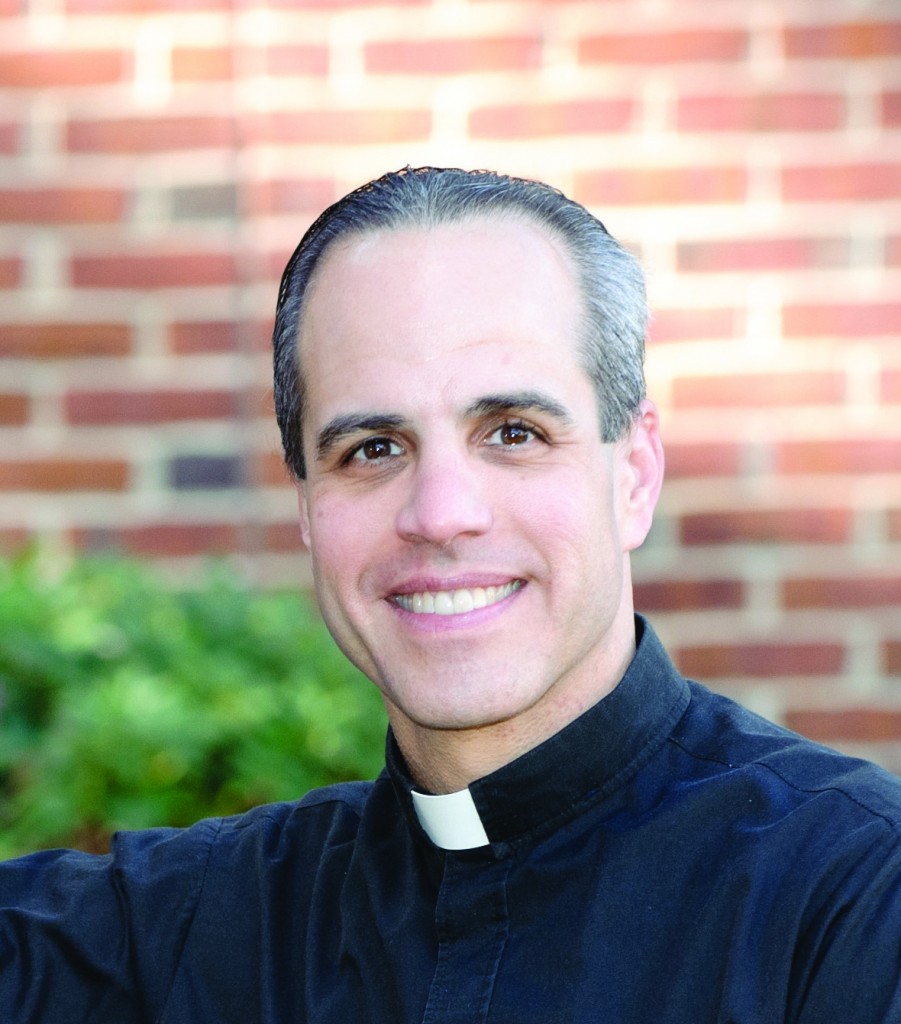 Rev. Rocco Danzi, S.J., director of Campus Ministry, shares his personal insight on the impact of Pope Francis on the Catholic Church thus far and what might be expected in the future.
Rev. Rocco Danzi, S.J., director of Campus Ministry, shares his personal insight on the impact of Pope Francis on the Catholic Church thus far and what might be expected in the future.
Do you think Pope Francis’ roots as a Jesuit have impacted his leadership thus far?
Saint Ignatius urges the Jesuit to always be open, to always be listening to how God is speaking to you, to presume nothing and just listen. I think that our new pope has that Jesuit quality about him.
How is Pope Francis different than past leaders of the Catholic Church?
Pope Francis is wowing so many people because they haven’t seen his style of leadership in previous popes. Certainly Pope John Paul II had the zeal and the charisma, and he became a very big, bold figure for the Church. However I think Pope Francis is a little different because while he is wowing the crowds, he doesn’t want all of the focus on him. His homilies are not as long or as philosophical as the ones given by Pope John Paul II or as theological as Pope Benedict’s. Our new pope is a very smart man and he can say very complex things and offer very deep reflections in simple words and simple images.
What are some of the themes that Pope Francis is focusing on?
Pope Francis’ themes have been about peace: finding peace in Christ, then in our own lives and then sharing that peace with others. Another common theme has been poverty. Poverty in terms of how we can we become a little less attached to things, to positions, to power, to preoccupations that take us away from the Gospel message of Jesus.
Is Pope Francis already doing something different than past leaders?
I think Pope Francis is trying to work on the Curia, the group of leaders who govern the Church. The Curia was noted as being in need of reform before Pope Francis was elected. What he has done is formed an advisory council of archbishops from around the world, outside of the Curia circle, to advise him. This advisory committee will make recommendations to him about things that need to change.
One member of this group is Boston Cardinal O’Malley. Cardinal O’Malley is a Franciscan and while he used to wear the cardinal robes, more recently he has been wearing his Franciscan robes. Perhaps there is something there with Pope Francis getting a cardinal to show his roots as a Franciscan. Pope Francis may be getting some others in leadership to not to be afraid to do things a little differently. Whether you’re a Jesuit or a Franciscan or a Benedictine, these traditions can enrich the Church and add to any reform or renewal.
Do you think Pope Francis’ actions have made an impact on the Church?
Following the Easter holiday, some people have written that dioceses and parishes noted that there were many more people involved in Holy Week and Easter celebrations than last year. This could mean that in such a short time of Francis becoming pope, we are possibly seeing some reconnection with the Church. There is a lot of hope that he will be bringing people back. I have the opportunity to help in parishes with many Latinos, and I have to say that the Latino community in the United States is overjoyed. This is such an affirmation of their faith and culture. A number of priests that I know are so excited because they feel that this pope is going to help them with their work of evangelization and bringing people back because many are reacting positively to his style.
What does Pope Francis’ election mean to priests such as yourself?
I think that this pope has an amazing sense of himself in leadership. I think that there is no ego there and he wants to model to other priests how they should be. At the Chrism Mass where every bishop blesses the holy oils for the coming year, Pope Francis gave a unique homily. Chrism Mass is a celebration of the priesthood of Christ. The homily was really about how priests are called to be servants and shepherds. He said that this is the challenge of priesthood today, not to become lost in the worldly way of leadership but to understand the Gospel way of leadership.
